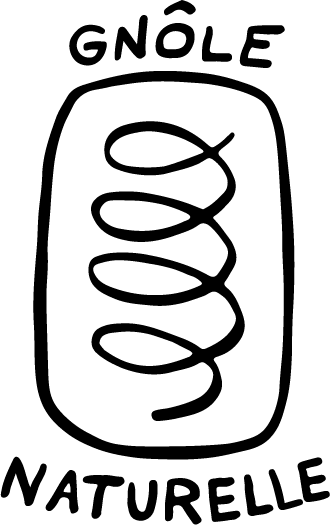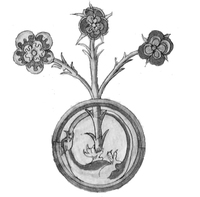The Natural Booze Manifesto
In light of a rising craft fashion and with the EU-organic label becoming more and more delusional, we, “natural distillers”, feel the need to explain what we do and what distinguishes us from those who work industrially and many other “artisans”.
(To sign please use the comment section below)

There’s a difference between craft and craft: working with your hands doesn’t mean you refrain from using industrially produced bases, resorting to the chemistry lab or buying your botanicals on the world market. And craft doesn’t imply organic.
People are confused, knowledge about distillation and distillates is rare and has been lost with the decline of rurality. Many new techniques have risen with the scientification and industrialisation of the production of distilled alcohol.
Time for us to do as our comrades in Natural Wine and nail down a Natural Booze definition.
Our Heritage
Distilling is an old craft belonging to alchemy and to the farmers world: distilling meant transforming matter and creating medicine, and later on, it also meant creating tasty drugs from your local fruit. Thereby you could use your excess, have something to get warm on in cold and long winter nights and have a means of payment and exchange in the rural context. In any case, wherever there was farming, there was fermentation and once invented, the alembic was never far.
With alembics in every farmhouse or village, local traditions had evolved and recipes, working styles and methods had been born. This is the context of our craft. It has been willfully destroyed by legislation with great efficiency in many countries.
We believe that looking back and acknowledging our heritage while taking it to the 21st century, combining it with research findings and the piled up knowledge of all the people who distilled before us, we discover the wealth of a craft almost extinct.
The Foundations
Industrialisation has seen technical evolutions of distilling, but the basic concept: growing, fermenting, cooking, condensing, has remained the same. It is with this awareness that we write. Therefore to us distilling implies taking responsibility for the land that grows the fruit. Industry and intensive agriculture have been destroying biodiversity, soils and water reserves. As distillers we cannot ignore the way our base has been grown and processed. We adhere to minimal pollution. This has implications.
Natural distilling means searching for the pure expression of
- the fruit, cereal, vegetable or plant,
- the land (terroir) and
- the personality of the distiller and his method.
Together they will always lead to a unique product, for no distiller, no alembic, no land, no year’s seasons and no fruit/plant are the same. We reject the standardisation of flavour as proposed by industry. But we do insist on making high quality distillates. Alcohol can be harmful for your health, or it can be a cure. Dosis venenum fecit: it’s the dose that makes the poison, Paracelsus said. Its consumption is hence a question of balance. For a happy high that stimulates interesting conversations and leaves us with beautiful memories, we need good alcohol.
Natural Booze is by consequence defined by
- craft work
- untreated distillates
- respect for nature
Our Avowals
We therefore adhere to 12 avowals:
- We distill in manually operated copper stills (other traditionally used natural material like clay pots for Mezcal possible).
- We obtain our base from organic quality farming (with or without official label).
- We obtain our base locally and we know the social practices and working methods applied by the producer.
- We do not intervene in the mash: no sulfuric acid, no peroxide, no lye, no external yeasts, no artificial enzymes, no taste enhancement. Only fermentation on indigenous or self-raised yeasts can ensure that it’s the fruit that expresses itself and it’s the yeasts and enzymes present in this part of the world that have assisted. Wine used as base is respectively Natural Wine. If you use different bases, add yours. (Cereal bases need to be discussed yet.)
- We do not use additives to facilitate distillation such as anti-foaming agent.
- We do not use ethyl alcohol, as it is an industrial product.
- We do not clear or filter (activated carbon, milk protein, bentonite, gelatin etc.): Natural Booze is living booze. To remove thick deposit we may use a particle filter. That’s all.
- We do not use additives such as synthetic colourants, sugar, caramel, citric acid, glycerine etc (no elements modifying structure, colour, taste or look except if naturally obtained by maceration of a plant or barrel aging for example).
- We stock in wood, glass, stone or stainless steel, but not in plastic to avoid phtalate extraction.
- We pay attention to the quality of our diluting water.
- We are honest and transparent about our products.
- We engage in waste reduction, energy efficiency, water saving and good social relations.
The idea of this manifesto is to educate. We are not creating a label nor do we want to control or start a new bureaucracy. We want people to make their choice consciously, and we want to answer their questions truthfully. We’re not looking for perfection, we search to share our methods, doubts and quests of improvement. There is no control, only trust.
Collective of distillers of L’Atelier du Bouilleur, Distillerie Baptiste & Alcools Vivant, december 2018. - Text under Creative Commons licence BY-ND
facebook.com/gnolenaturelle
Instagram: @gnoles_naturelles
Signing distillers (chronological order)
To sign, please leave your details in the comments.
- L’Atelier du Bouilleur (distillery), Autignac, France
- Baptiste François / Distillerie Baptiste (distillery), St Etienne de Chomeil, France
- David Mimoun / Alcools Vivant (producer), Chalais, France
- Frederic Bourgoin/Bourgoin Cognac (winemaker and distiller), Tarsac, France
- Laurent Cazottes (distiller), La Pangée, France
- Yann Lioux / Jean Tonique LYBR (producer), Montpellier, France
- Coeur De Cuivre (distillery), Vauvert, France
- Moby Dick (distillery), Plogoff, France
- Laurent Pernet /Ambix Distillation (distillery) Vizille, France
- Matthieu Frécon/ Edelweiss Distillerie (distiller), Sarreyer, Switzerland
- Elodie Juillet (distiller of essential oils and alcohol), St Affrique, France
- Etienne Thomasin (sympathising brewer and distiller in the course of incorporation), Vosges, France
- Christian Binner (winemaker and distiller), Ammerschwihr, France
- Manuel Engel, Engel Naturbrennerei (distillery), Schönau (Rottal-Inn), Germany
- Pierre Rousse (winemaker and producer), Limoux, France.
- Vincent Marie/ Domaine No Control (winemaker and distiller), Châtel Guyon, France
- Theo Ligthart/ Freimeisterkollektiv (producer), Berlin, Germany
- Hervé Mercier-Metz/Le comptoir de l’alchimiste (distillery), Mane, France
- Ian McCarthy / Artemis botanical wines and distillates (winemaker and distiller) California, USA
- Stéphane Casaubon & Joëlle Bolduc / Les Esprits tordus, (micro-orchard and craft distillery), L’Assomption, Québec, Canada
- La Piautre (malthouse-brewery-distillery), La Menitre (Anjou), France
- Anne FELL /Mas de l’Escarida/Distillerie Sani Locus (winemaker and distiller), Cubagnac (Sanilhac, Ardèche), France
- Yann Charlier/Charlier&Fils (brewery-distillery), Warcq, France
- Florent Vilisque / L’eau des Vivants (distillery), Lamure sur Azergues, France
- Nicolas Bloch /Distillerie de Saconnex-d’Arve (distillery) Switzerland
- La ferme des Clouts (distillery and farm), Itzac, France
- Peter Bignell/Belgrove Distillery (distiller), Tasmania, Australia
- Matthieu Schutzger & Claire Laura Monseau/Distillerie Spiral (distillery), Katzenthal, Alsace, France
- Pablo Lerey / Distillerie du chant du cygne (distillery), Campagnac, France
- Atelier Constant Berger (Cidery-Distillery), Hervé, Belgium
- Simon Tardieu / La Distillerie du Renard (Distillery), Gignac, France
- Marina Noury / Distillerie Divine (Distillery), Vallet, France
- Christian Delobelle/ Distillerie Des Enfants de Vauban (Distillery), Cuincy/Somain, France
- La Muse du Verger (Distillery), St Beauzély en Aveyron, France
- Destillerie Kolonko, (Distillery), Staufen, Germany
- Distillerie du Ponant (Distillery), Belle Île en Mer, France
- Distillerie Disent-Elles (Distillery), Pont-l’Abbé-d’Arnoult, France
- Distillerie Chavanay (Distillery), Pilat, France
- Distillerie de la Terre Ronde (Distillery), Fonvtvielle, France
- Gagygnole (Distillery), Souboz, Switzerland
- Distillerie Bonvalet, (Distillery), Pierry, France
- Domaine des Hautes Glaces (Distillery), Le Prieuré, France
- Lolita Roche - Distillerie Sentema (Distillery), Correns, France
- Distillerie Quentin – Quentin Le Cléac’h, (Distillery) Saint Quentin la Poterie, France
- Distillerie Les Feux de Saint-Jean (Distillery), Saint-Jean-Chambre, France
- Abellio (Distillery), Saint-Léger-Vauban, France
- Copines de Gnôle (producer), Montreuil, France
- Gena Nonini, Marian Farmhouse Spirits (Distillery), Fresno (CA), USA
- Pedro Paiva & Rosana Cavaleri, Alba Destilaria (Distillery), Monte Belo do Sul, Brazil
- Distillerie du Viaduc (Distillery), Paris, France
- Hootch (independant bottler), France
- Jullius (distillery), Kibbutz Hanita, Israel
- Distillerie La Gueule des Bois (distillery), Menglon, France
- Distillerie Le petit Bouilleur (distillery), Abergement le petit, France
- Thompson Brothers – Dornoch Distillery (distillery), Dornoch, Scotland (UK)
- Destilaria Vanha (distillery), Porto Alegre, São Tomé et Principe
- Lana Labermeier / La Thériaque Spiritueux (Distillery), Montpellier, France
- Château de Millet (Winemaker and distillery), Armagnac, France
- Enora Villieu / Punks à Fleurs Alchimie (distillery), Guiscriff (Brittany) France
- Calvados Comte Louis de Lauriston/Guillaum Drouin (distillery), Domfront (Normandy), France
- Nader Muaddi/Muaddi Craft Distillery (distillery), Beit Jala, West Bank Palestine
- Mauricio Maia (distiller), Brasil.
- BADAS _ Brasserie Artisanale et Distillerie Astusieuse de Schlag/ Guillaume Bousquet (distillery), Rodez, France
- Distillerie Agrippa/Jérémie et Lora Sadoux (distillery), Mirmande, France
- The Gingi Project (cidery-distillery), Penglai, China
- Atelier 27db (distillery), Dijon, France
- Maison Granit (distillery) Saugues, France
- SAS Sylvestre/Oxymore, (spirits editor), Cognac, France
- Martin Métayer/Distillerie Dandelion, (distillerie) Dournazac, France
- Domaine de Laballe / Cyril Laudet (domaine and distillery), Parleboscq, France
- Distillerie 168)) (distillery), Pornic, France
Signing sympathisers (chronological order)
- Arnaud Lintilhac, Marseille, France
- Anne Perrin chef), Paris, France
- Florence Faure-Brac (phytotherapist) Sumène, France
- Thibaut Suisse botaniste), St. Hippolyte du Fort, France
- Garlonn Kergourlay (brewing expert), Montpellier, France
- Philippe Cuq / Le lieu du Vin (wine merchand), Paris, France
- Julie-Aimée Rainaud (wine agent), Paris, France
- François Cancelloni (former distiller), Ex-Ergaster/Picardie, France
- Florence Guy (winemaker), Murviel-lès-Béziers, France
- Marilyne Fernandez (sommelière), Perpignan, France
- Philippe Froment (marketing and communication coach), Taulignan, France
- Edward Jalat-Dehen/ Brasserie de l’Être brewer), Paris, France
- Surk-ki Schrade/La Vincaillerie (wine merchant), Cologne, Germany
- Hendrik Schaulin / pHenomenal Drinks (craft limonadier), Hamburg, Germany
- Sébastien Bellétoile/Meuh Cola & Cow (craft limonadier, about to develop his own aromatic alcoholic plant extracts), Granville, France
- Christophe Bauer, (sculptor and home distiller), Colmar, France
- Laurent de Sutter writer and critic), Brussels, Belgium
- Antoine François associate of a distillery), Paris, France
- Bar Boteye (Cocktail bar), Spa, Belgium
- Thad Vogler, Bar Agricole (single origin spirits bar & retail), San Francisco, USA
- Geraldine Gottdiener, (gastronomy agent and consultant, event organiser, natural wine & booze lover), Paris, France
- Jean-François Gallon /LA QUARRÉENNE (merchant), Nord-Morvan, France
- Max Garonne (journalist), San Francisco, (California) USA
- Distillerie Bloom Soul (distillery in conversion), Feliceto (Corsica), France
- Yousta (distillery in conversion), Lyon, France
- SOLIDE/Romain Fourcade (Wine and spirits agent), Nantes, France
- François Vimont/Pressoirs et Alambics (Wine and spirits agent), Mollans-sur-Ouvèze, France
Download the manifesto
for printing:
for reading in A4 pdf:
Natural Booze on Facebook (French)!






Your comments
# On 21 June 2023 at 19:39, by Mauricio Maia Replying to: The Natural Booze Manifesto
Hello,
I´m a brazilian master distiller that works for several brands in Brazil and abroad. Mostly cachaça, but with rum, gim and fruit brandies too.
At my work with all my clients I advise them to adopt methods that are all on the manifest.
As my frinds from Alba Destilaria, I´d like to sign the manifest once is what I believe.
Thank you!
Best,
Mauricio.
Comment on this article
Follow the comments: |
|
